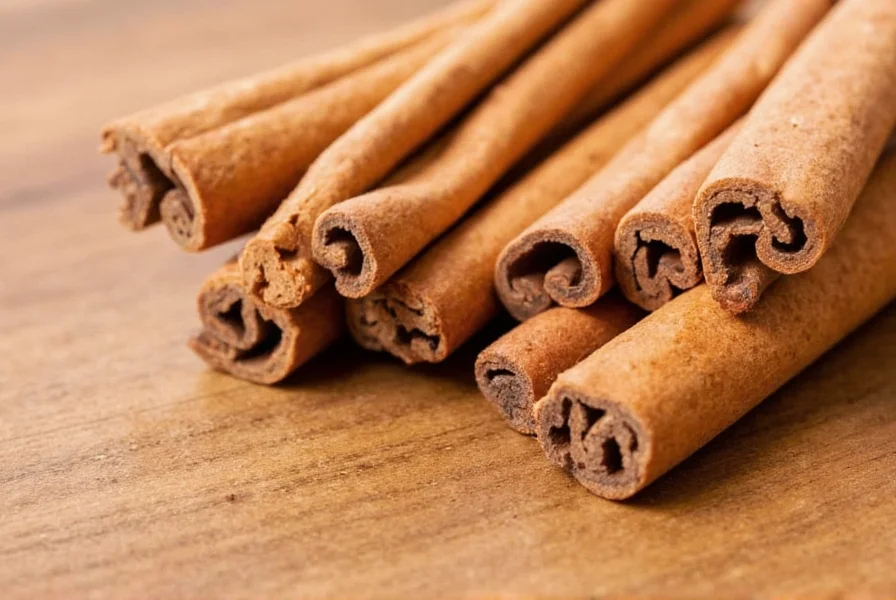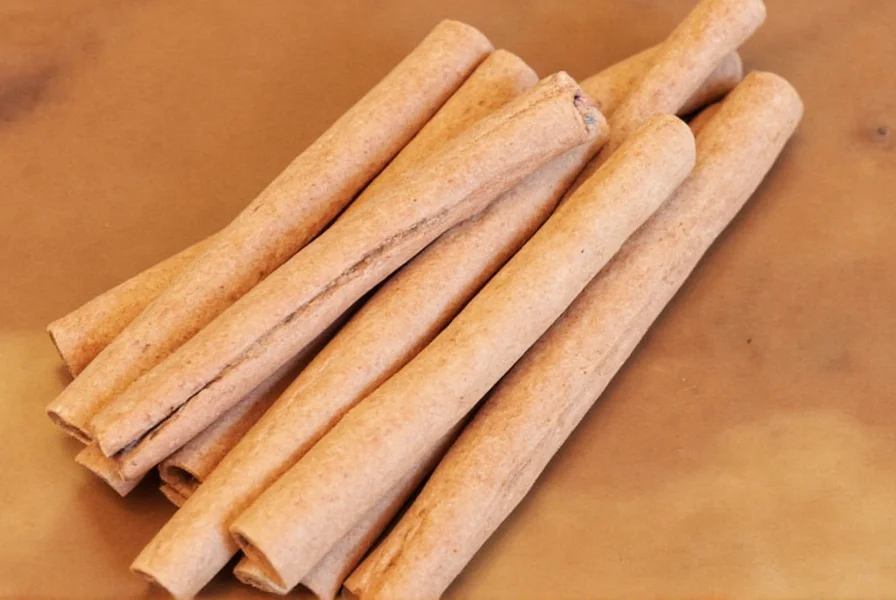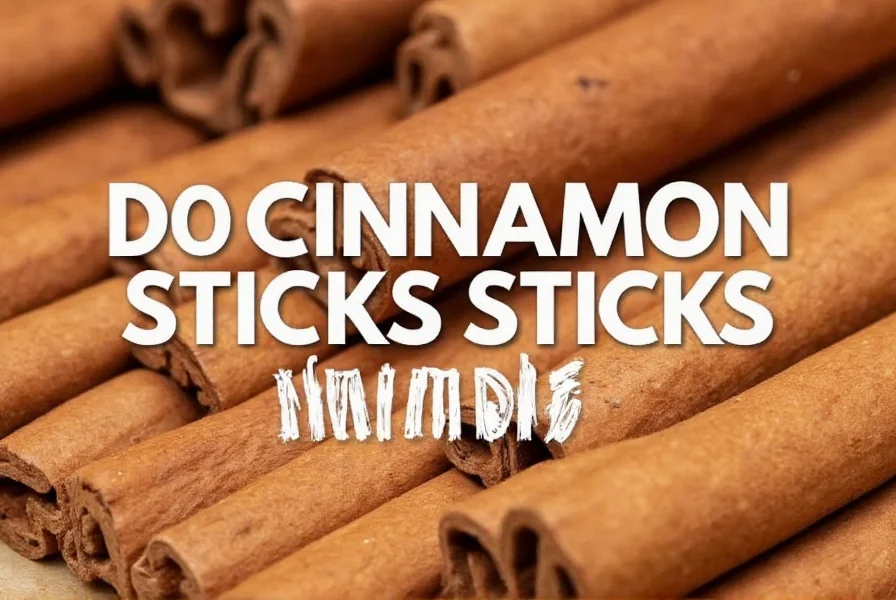When you're reaching for that jar of cinnamon sticks in your spice cabinet, you're probably wondering: do cinnamon sticks go bad? The straightforward answer is no—they won't make you sick like perishable foods might. However, they do lose their vibrant flavor, aroma, and potency over time, which affects your culinary creations.
Understanding Cinnamon Stick Shelf Life
Unlike fresh produce or dairy products, cinnamon sticks don't have an expiration date that indicates safety concerns. Instead, they have a "best by" date that refers to peak quality. Whole spices like cinnamon sticks last significantly longer than their ground counterparts because the essential oils remain protected within the bark structure.
According to food safety experts and spice manufacturers, properly stored cinnamon sticks maintain optimal flavor for 3-4 years. After this period, they don't suddenly become unusable—they simply require more quantity to achieve the same flavor impact in your recipes.
Signs Your Cinnamon Sticks Have Lost Quality
While cinnamon sticks rarely go bad in the dangerous sense, they do degrade in quality. Watch for these indicators that your cinnamon has lost its potency:
- Faded aroma - Fresh cinnamon should have a strong, sweet, woody scent. If you need to crush a piece to detect any fragrance, it's lost significant potency
- Color changes - High-quality sticks have a rich reddish-brown color. As they age, they may become duller or develop a grayish tint
- Brittleness - While some dryness is normal, extremely brittle sticks that crumble easily have likely lost moisture and flavor compounds
- Lack of flavor - When used in cooking, old cinnamon won't provide the expected warmth and sweetness
| Storage Condition | Expected Shelf Life | Quality Notes |
|---|---|---|
| Airtight container, cool dark place | 3-4 years | Maintains 80-100% flavor potency |
| Original packaging, pantry | 2-3 years | Gradual flavor loss after 18 months |
| Exposed to light/moisture | 6-12 months | Rapid quality degradation |
| Refrigerated (dry climate) | 4-5 years | Minimal additional benefit over pantry storage |
Proper Cinnamon Stick Storage Methods
The best way to store cinnamon sticks involves protecting them from the four enemies of spice quality: air, light, heat, and moisture. Follow these storage guidelines to maximize shelf life:
- Transfer to airtight containers - Move sticks from flimsy store packaging to glass jars or containers with tight-sealing lids
- Choose the right location - Store in a cool, dark cabinet away from your stove, dishwasher, or other heat sources
- Avoid refrigerator storage - Unless you live in a very humid climate, refrigeration introduces moisture that degrades quality faster
- Keep away from strong odors - Spices can absorb surrounding smells, affecting their pure cinnamon flavor
For those wondering how long do cinnamon sticks last under ideal conditions, properly stored whole cinnamon maintains excellent quality for 3-4 years. This is significantly longer than ground cinnamon, which typically lasts 1-2 years before noticeable flavor loss.

Testing Your Cinnamon's Potency
Before you toss older cinnamon sticks, perform these simple tests to determine if cinnamon sticks are still good:
The Crush Test: Take a small piece and crush it between your fingers. Fresh cinnamon should release a strong, sweet aroma immediately. If you barely detect any scent, the flavor compounds have significantly degraded.
The Taste Test: Steep a small piece in hot water for 5 minutes. Fresh cinnamon creates a noticeably sweet, spicy infusion. Weak or barely detectable flavor indicates diminished quality.
The Visual Inspection: Check for any signs of mold, insects, or moisture. While rare with properly stored cinnamon sticks, these would indicate the product should be discarded.
Creative Uses for Older Cinnamon Sticks
If your expired cinnamon sticks have lost significant flavor but show no signs of spoilage, don't throw them away. Consider these alternative uses:
- Homemade potpourri - Combine with citrus peels and other dried spices for natural home fragrance
- Cleaning scrub - Mix with baking soda for a mildly abrasive, naturally scented cleaning paste
- Infused simple syrup - Simmer in sugar water longer than usual to extract remaining flavor compounds
- DIY air freshener - Simmer in water with orange slices for a natural room deodorizer
For culinary purposes, you can often compensate for older cinnamon by using slightly larger quantities or pairing with complementary spices like cardamom or nutmeg to enhance the overall flavor profile.

When to Discard Cinnamon Sticks
While cinnamon sticks don't go bad in the food safety sense, there are specific situations when you should discard them:
- Visible mold growth - Any fuzzy spots indicate moisture contamination
- Pest infestation - Signs of insects or larvae mean the product should be discarded immediately
- Musty or off odors - If it smells like damp cardboard or mildew rather than cinnamon
- Exposure to moisture - If sticks have become damp and then dried, they've likely lost significant quality
Remember that ground cinnamon vs cinnamon sticks shelf life differs significantly—ground spices lose potency much faster due to increased surface area exposed to air. If you're wondering does ground cinnamon go bad, the same principles apply: it won't make you sick but will lose flavor over time.
Frequently Asked Questions
How can you tell if cinnamon sticks have gone bad?
Cinnamon sticks don't spoil in a dangerous way, but they lose potency. Signs of degraded quality include faded aroma (requiring crushing to detect any scent), dull or grayish color, extreme brittleness, and lack of flavor in cooking. Discard only if you see mold, pests, or musty odors.
What's the best container for storing cinnamon sticks?
The best storage for cinnamon sticks is an airtight glass or metal container with a tight-sealing lid, kept in a cool, dark cabinet away from heat sources. Avoid plastic containers which can retain odors, and never store in the refrigerator unless you live in a very humid climate where pantry moisture is a concern.
Can old cinnamon sticks make you sick?
Properly stored cinnamon sticks won't make you sick even after several years, as they don't support bacterial growth. They simply lose flavor and aroma over time. The only safety concern would be if they developed mold, were infested with pests, or were exposed to moisture contamination - in these cases, they should be discarded.
Do cinnamon sticks last longer than ground cinnamon?
Yes, whole cinnamon sticks maintain their quality significantly longer than ground cinnamon - typically 3-4 years versus 1-2 years. The protective bark structure of whole sticks preserves the essential oils better than the increased surface area of ground spice, which exposes more flavor compounds to air and light degradation.
How can I revive old cinnamon sticks?
While you can't fully restore old cinnamon sticks to their original potency, you can maximize remaining flavor by toasting them lightly in a dry pan before use, crushing them to increase surface area, or simmering them longer in liquids. For baking, increase the quantity slightly or pair with complementary spices like cardamom to enhance the overall flavor profile.











 浙公网安备
33010002000092号
浙公网安备
33010002000092号 浙B2-20120091-4
浙B2-20120091-4